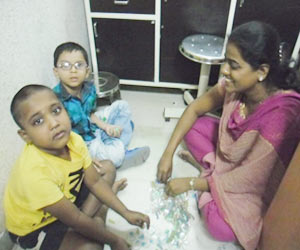Qantas Airlines claims that as per rules, the mother should have submitted a medical certificate ahead of travel, and not while check-in.

Gizelle Laurente bought a ticket for Jacob, her 6-year-old son, to visit his father for Easter weekend. She could not afford a ticket and wanted her son to travel alone after she consulted his pediatrician, and even arranged for him to take a higher dose of his ADHD medication so he would remain calm during the flight.
Laurente claims that when a pilot came to meet Jacob at the boarding gate, she relayed his conditions and the pilot refused to board Jacob. Laurente said, "I was heartbroken for him. I just started crying."
She later took to Facebook to complain. A Qantas staff explained that their medical team needed more information about Jacob’s condition. They required Jacob’s medical forms to be submitted several days before the flight, not at check-in.
Source-Medindia
 MEDINDIA
MEDINDIA




 Email
Email








